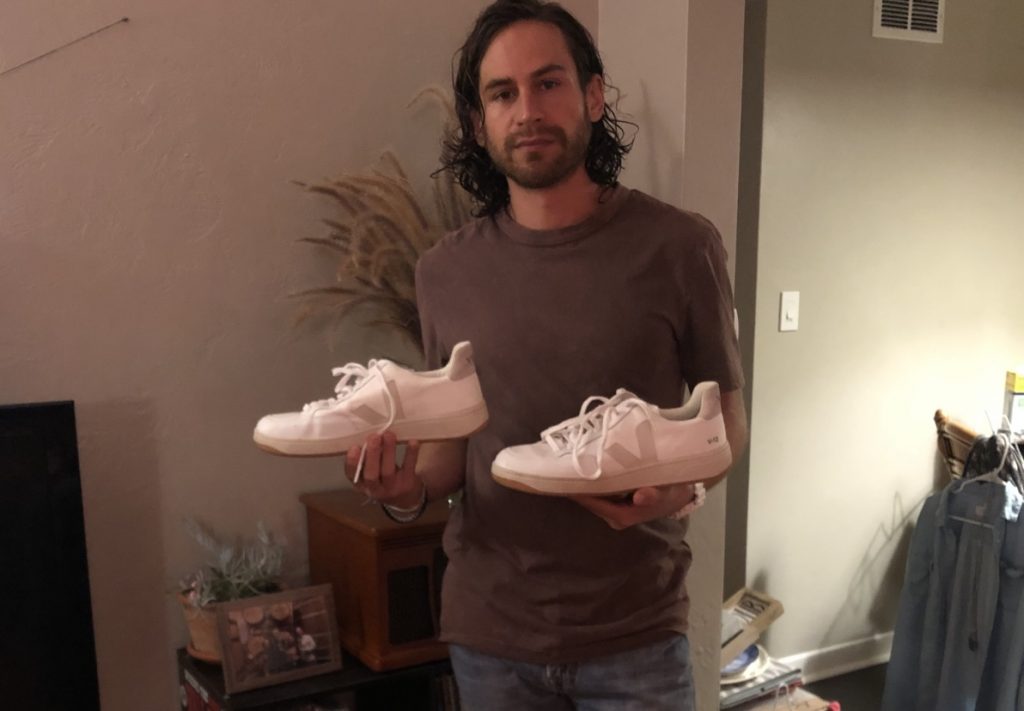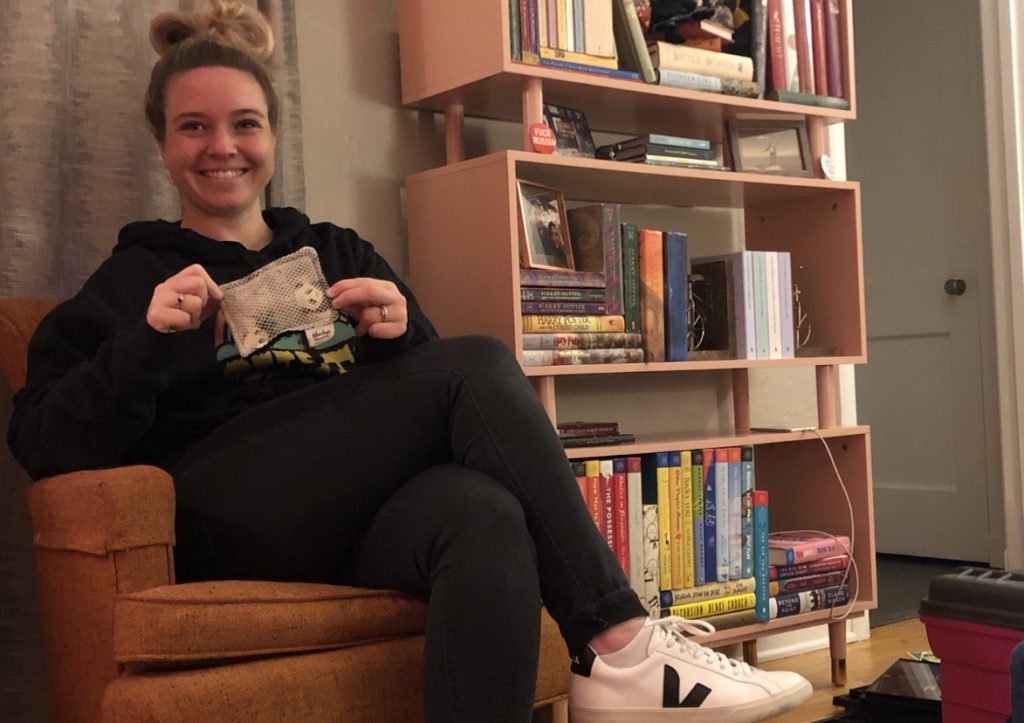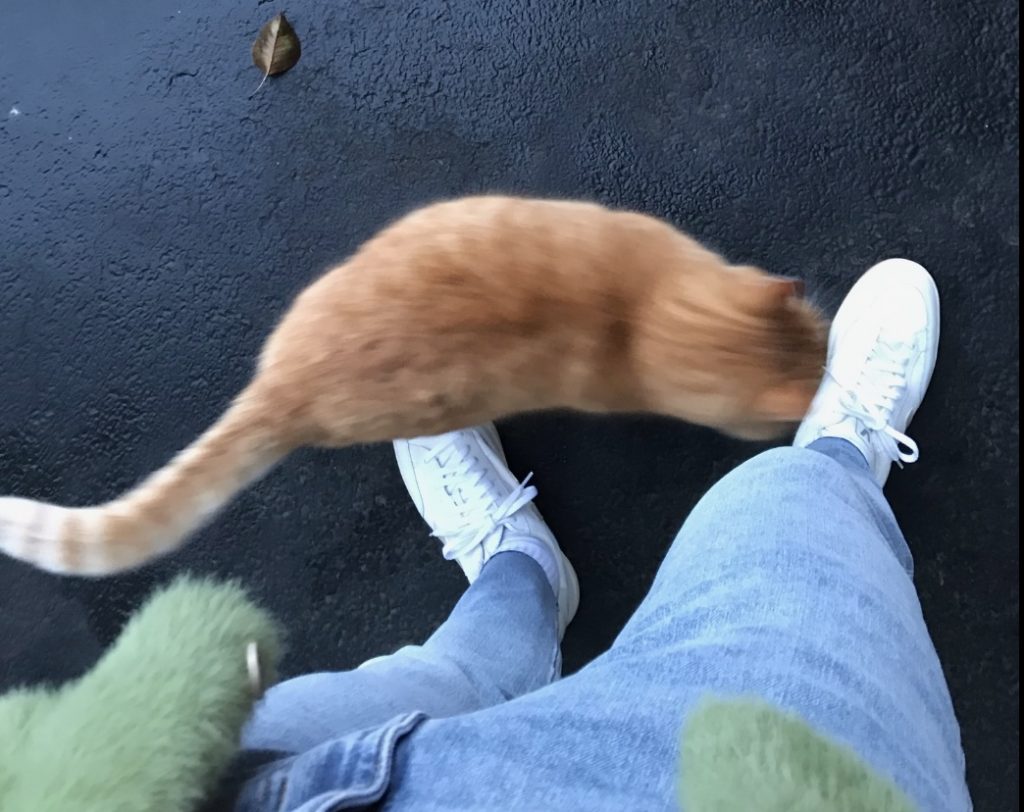Today, we get to chat with Cody and Brianna, new homeowners living in South Dakota. Sharing which products they use to try to make less of an impact, we get some insight into what small steps we can make to make a difference.
What does Sustainability mean to you?
B: “I think it means making a conscious effort to take that first little step. And hopefully it’ll be a lasting effort. It’s expensive, but what’s really cheap is recycling. I would just encourage everyone to recycle because I think that’s a good first step in the right direction.”
C: “To basically reduce the amount of trash that is collecting in landfills. That’s kind of how I view it: trying to keep more stuff that I can reuse and to make sure if I purchase something, it’s more long term than short term. The only problem I have with sustainability is just with my shoes. It’s the more information you get- you kind of grow as you retain more information.”
Why does it matter?
B: “Because selfishly, I want to see places like Yellowstone in like 10 years. I want everyone to enjoy what I got to enjoy.”
C: “I guess it’s just to leave a good footprint. We’re only here for 70 years or whatever, so I don’t want to be a major cause in why things are messed up 100 years from now.”
Does Sustainability imply an ethical responsibility?
B: “Yeah, I think it does. I would say it does to the Earth, and I mean that’s why Cody and I didn’t understand why we couldn’t use our reusable bags at the grocery store today, even though the grocery store didn’t require masks. Not enforcing a mask, but you can’t use your reusable bags? It literally makes no sense. That’s why I emailed the grocery store. What about Mother Nature? No one’s sticking up for Mother Nature, so I will. Mother Nature needs someone, so I’m gonna be that person.”
C: ” Yeah, I would assume so.”
Are there any practices that you implement in your everyday life to make it more sustainable?
B: “I think the Terra Shepherd boutique in Sioux Falls – she really implements a good lifestyle. I just started using reusable sponges for example. Terra Shepherd sold them, so I bought a couple, and they actually work really well. You just have to throw them in the washing machine. Yeah, they’re really nice. And then I buy some clothes here and there that are sustainable. And ‘sustainable’ too – this is what Terra Shepherd has taught me – it goes beyond even the environment. It means paying your workers a fair wage. Also, Cody hang drys our clothes, so that’s another example of sustainability. Cody’s really good at doing that. Something I need to get better at is not using the garbage disposal. I think I need to learn how to do a compost. I think that’s something I’m going to try next summer for the first time. Now we have a huge vegetable garden. So I’m going to rototill that and use compost on it.”
C: “We’re trying to use reusable bags, obviously, when we grocery shop. For lunches, I try to use more glass than plastic, especially when you look at long term. When I put together lunches for work, I try to do more glass bowls and containers. I feel like that can last until it cracks verses plastic. I know some of the plastic containers you buy, they get discolored and kind of lose their appeal and they aren’t as durable. And then learning about all this stuff: when you continuously put them in microwaves and heat them – glass is a lot better. Looking at shoes and stuff like that, they’ll probably find a better way in the future to make sustainable shoes that actually feel good. I do have a couple pairs of shoes that I’m happy to say that I’m proud I ran them to the ground. So, try to wear clothes as much as possible. It’s hard to do that when we have a strong culture of fast fashion still. It’s hard being a middle school teacher and being sustainable but trendy at the same time. Hopefully that’ll kind of take care of itself when it becomes a little more mainstream. I think it already has, but I think we’re just at the beginning. I do want to look a little bit more into lotions and hair products – like with taking a shower and thinking about what’s going down into the drain or the sink after you use it. Oh, and I did mention it to the kids [his middle school students] today that we bought a new mattress that’s made out of recycled water bottles. We had two options, but we decided to go with the more sustainable option. We do need new pillows too, so maybe that’s the next step, finding some that are make out of reused or recycled products.”
Asking Cody to elaborate on the glassware, I asked:
Would you stay that sustainability includes health?
C: ” Yeah, I never really thought about it like that, but yeah, I’m sure it would. I mean, your immediate and collective health, especially getting rid of the plastic. It’s not even our health, but it’s the ecosystem and everything. Taking plastic out of the environment -who knows what chemicals you touch and stuff. They say that they’re safe, but if something heats up or if you even touch a plastic bag. You don’t know what chemicals might be transmitted into your skin. It’s kind of like when you hear about putting on sunscreen. Like, it can get into your bloodstream. You don’t know what happens when you touch plastic or even warmed-up plastic in addiction to the fact that you’re eating the food that’s warmed up in it. It’s just another reason why I try to choose glass over plastic.”
Is there a certain brand you like to stick to for the products that you mentioned?
C: “Veja, I’d say I’d stick to them. I would categorize them more as a dress shoe. In an office – just walking a little bit – I think they’d be really good shoes. They look really nice and when you’re wearing them they look really trendy.”
B: “The sponges that I use are called Marley’s Monsters. I think she’s a South Dakota brand.”
How often do you do these practices or uses these products?
B: “So Cody and I just try to use the dishwasher just once a week because we can do them in the sink most of the time, so I use the sponge a lot. Our recycling goes out every other week, but our recycling can is bigger than our garbage can.”
Was there a certain moment or light-switch that marked when you wanted to or felt the need to make these changes?
B: “I actually, really think that it was when I went out west for the first time. I was like, ‘oh my gosh, I want to preserve this land!’ It was probably my ah-ha moment. It was just like, ‘I absolutely love it out here’ and I just want to save it.”
C: “I think the biggest one was that I was under the impression that we recycled plastic. I thought they melted in down, and then I realized you can’t even recycle plastic bags even though I was putting my recyclable items in the plastic bag. When I found out that’s an issue with the people at the recycling place, I was like, ‘oh wow well looks like I’ve got to change my practices.'”
We were always taught to “reduce, reuse, recycle” in school growing up, but did they really teach us how to recycle? A way to be proactive about helping prevent plastic pollution is to refuse the plastic product if you can. Recycling can be impactful, but it isn’t always the best option, given the specific product in question. Some types of plastics can be recycled while others cannot. Check out the Environmental Protection Agency’s website to learn more information! You can also check out an informational PBS video about it!
Do you know of very many people who have similar practices as you?
B: “Oh wow, similar practices? I would say maybe 5 percent, if that. So it’s really sad actually.”
C: “I would say that at least everyone I know at least tries to recycle stuff. I would say for people our age [20’s and 30’s], it would be 80-100 percent. I feel like we’re way beyond that as a political issue. I feel like everyone is on board with the whole plastic thing at least. I know both democrats and conservatives who recycle.”
What current barriers do you think there are for individuals or society for not switching to more sustainable methods of living?
B: “First, I think it’s expensive. I think it’s very expensive, especially when you’re try to buy clothes, it’s very expensive. But, on the other hand, it is cheap. I don’t want to discourage anyone from trying to be more sustainable because it is obtainable, but if you’re really trying to take that next step, I think it’s very expensive. I would say convenience too.
C: “Well just with the whole process with the bed: you have to make it affordable, and you have to make it just as good of quality as the competitor that’s using whatever else. The shoes, the bed. Yeah, I’m going to buy the best sustainable bed out there, but if it sucks to sleep in it, then am I really…you know what I mean? So I think it’s the cost, the quality, and that’s about it. If the cost goes down, and the quality is there, then I’m all on board.”
At a local or national level, what can we do to make more sustainable change?
B: “Again, it’s just making that first little effort. I mean, just one little step is in the right direction. If that means cutting up the plastic pop can holders, then cut them up so animals don’t choke on them or get them wrapped around their beaks so that they can’t open their beaks. I think that’s a little effort.”
C: “I think it’s just educating people and making sure everyone is on board with it. So again, not making it a political issue.
What actions do you think can make the most difference?
C: “It’s probably media, especially with young people. Just having the influencers somehow with subtle little ways. Then I think people will look up to those people. Make it cool. Make it popular. Make it something that’s hip, you know? Make it cool to buy a bed made out of recycled plastic bottles or shoes that are made out of something that’s 100 percent organic or something.”



October 24, 2020 at 5:47 pm
I love the blog! The shoes are cute and sustainable which makes them even cooler. Thanks for sharing Shae!